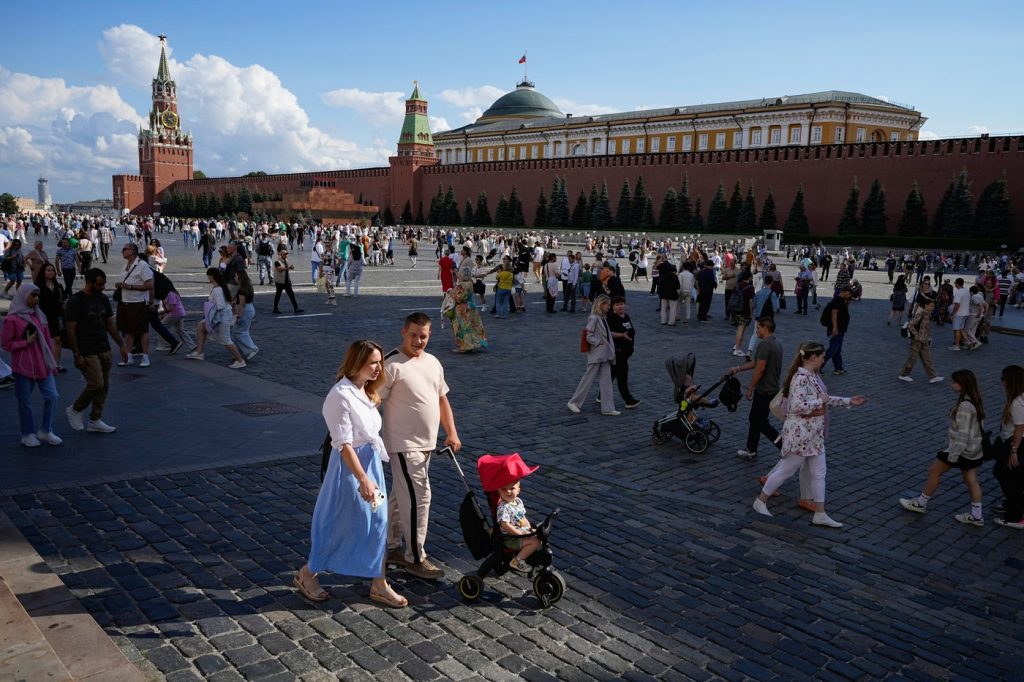For the past 25 years, President Vladimir Putin has been confronted with the significant challenge of Russia's declining and aging population. In 1999, the year preceding his rise to power, the number of births in the country reached its lowest level on record. By 2005, Putin acknowledged the urgent need to address these demographic issues through the maintenance of “social and economic stability.” In 2019, he remarked that the demographic crisis continued to "haunt" the nation. Most recently, in a demographic conference held at the Kremlin, he described increasing birth rates as “crucial” for Russia's future.
Putin has implemented various initiatives to encourage higher birth rates, which include providing free school meals for families with multiple children and awarding “hero-mother” medals to women who bear ten or more children. During a statement in 2023, Putin emphasized the importance of reviving traditions that support larger families, stating, “Many of our grandmothers and great-grandmothers had seven, eight, and even more children. Let’s preserve and revive these wonderful traditions.” Initially, the birth rate in Russia rose alongside economic prosperity, from 1.21 million births in 1999 to 1.94 million in 2015, but these gains are now under threat amid financial instability and the repercussions of the ongoing war in Ukraine.
Currently, Russia's population has decreased from 147.6 million in 1990 to 146.1 million in 2023, according to the Federal Statistics Service. Since the annexation of Crimea in 2014, the current population figures have also included the approximately 2 million residents of the peninsula. Moreover, the demographic landscape has aged significantly; in 1990, 21.1% of the population was aged 55 or older, a figure that is projected to rise to 30% in 2024. With the number of births declining since its peak in 2015, deaths now surpass live births, which numbered only 1.22 million in the previous year, aligning closely with the low recorded in 1999.
Despite efforts to address these issues, the Kremlin has turned to restrictive laws promoting “traditional family values.” This includes enforcing bans on the promotion of abortion and “child-free ideology,” as well as outlawing LGBTQ+ activism. According to Russian feminist scholar Sasha Talaver, officials perceive these measures as a “magic wand” to resolve demographic issues. There is a clear expectation for women to participate actively in reproduction for what the government frames as national strength and patriotism.
The historical context of Russia's demographic challenges cannot be overlooked. The significant loss of life during World War II, which saw around 27 million Soviet citizens perish, severely affected the male population. Furthermore, the dissolution of the Soviet Union led to additional declines in births. Currently, the limited number of Russian women in their childbearing years further complicates the situation as authorities are desperate to maximize births from this smaller demographic.
The consequences of the ongoing conflict in Ukraine have only exacerbated these problems, particularly with reports estimating hundreds of thousands of troop deaths and a mass exodus of young Russians seeking to evade military service or dissent suppression. The decline in available partners for parenthood has raised concerns about the future stability of the population. Even though some family-friendly initiatives have gained popularity, such as cash certificates to support parents, others, like one-time payments to pregnant teenagers, remain contentious.
In a further effort to boost the birth rate, Russia has implemented laws that inhibit access to abortion. While abortion remains legal and accessible, the landscape is shifting, with private clinics increasingly refraining from offering the procedure and new legislation curtailing the distribution of abortion-inducing medication. The government has also instituted mandatory waiting periods and counseling, which can delay access to legal abortions, prompting apprehension among women seeking reproductive health services.
Furthermore, Russia's current stance on immigration presents another avenue for population growth that the Kremlin appears reluctant to explore. Officials are intensifying anti-migrant sentiment, aiming to control the influx of foreigners and tracking their movements, which has deterred many potential immigrants who traditionally sought work in Russia.
As the war in Ukraine continues, officials are left promoting financial incentives for potential parents without guaranteeing the needed stability for family planning. Recognizing this long-term tumultuous outlook, experts affirm that such uncertainty diminishes confidence in the future, making it an inappropriate time for couples to consider starting families. Ultimately, the prevailing public sentiment emphasizes the necessity of ensuring that children are born to healthy and happy parents in stable environments.











